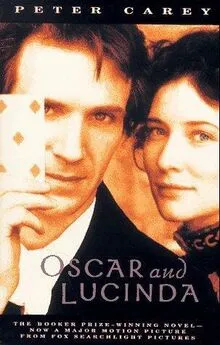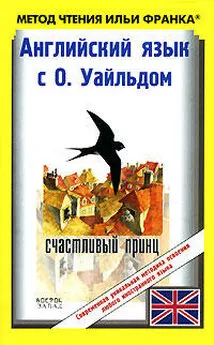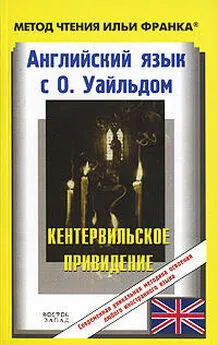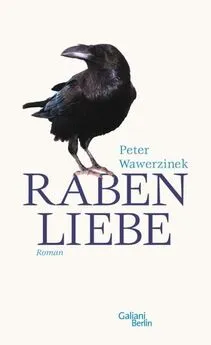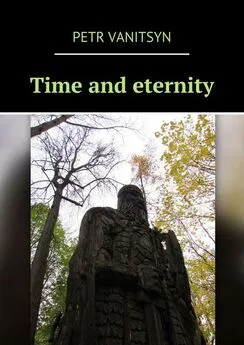Peter Carey - Oscar and Lucinda
- Название:Oscar and Lucinda
- Автор:
- Жанр:
- Издательство:Vintage Books
- Год:1988
- Город:New York
- ISBN:0-679-77750-4
- Рейтинг:
- Избранное:Добавить в избранное
-
Отзывы:
-
Ваша оценка:
Peter Carey - Oscar and Lucinda краткое содержание
The Booker Prize-winning novel-now a major motion picture from Fox Searchlight Pictures.
This sweeping, irrepressibly inventive novel, is a romance, but a romance of the sort that could only take place in nineteenth-century Australia. For only on that sprawling continent-a haven for misfits of both the animal and human kingdoms-could a nervous Anglican minister who gambles on the instructions of the Divine become allied with a teenaged heiress who buys a glassworks to help liberate her sex. And only the prodigious imagination of Peter Carey could implicate Oscar and Lucinda in a narrative of love and commerce, religion and colonialism, that culminates in a half-mad expedition to transport a glass church across the Outback.
Oscar and Lucinda - читать онлайн бесплатно полную версию (весь текст целиком)
Интервал:
Закладка:
It came up the river, its walls like ice emanating light, as fine and elegant as civilization itself.
"Who?" demanded Miriam Chadwick. "Who? Just answer me that." Who in this valley of muddy boots could be responsible for such a thing? For it was not simply that the little steep-roofed church was made from glass, but that it had all the lovely proportions and gracenotes of a fancy constructed for a prince, say, in Bavaria.
All along its roof ridge there was a decorative edging, a frill-she
Miriam
could not make it out exactly but it would seem, there, to be like a line of fleurs-de-lis. The glass sheets of its walls were not square and dull like window panes, but tall and thin, with a triangulation at the top, and a lovely cast-iron frieze made of medallions (crests?), which repeated in a frieze along the bottom of the walls. This cast-iron frieze must be nearly three feet high-ornate like the rood screen in a cathedral.
She did not see or appreciate Mr Flood's speciality-the cast-iron barley-sugar scrolls of which he had been so proud-and indeed it would not be more than a minute before she forgot the miraculous building entirely-it soon assumed no more importance than a pretty wrapping paper for, as the lighters slewed in the river, the glass regained its transparency, and she saw the blacksuited figure sitting on a chair inside the church. At this moment her sense of wonder was completely swamped by more practical concerns, for if this lovely building was a church — and was that not a cross at the termination of the cresting?then the blacksuited man inside was almost certainly a clergyman. She had an aqua moire-silk riding habit, which was thought "unsuitable" in Boat Harbour. She put it on. She had a little hat with a veil. She fastened it with a long pin. There was no time for bathing. She went out into the home paddock and caught the bad-tempered little Shetland which had been left at home, smacked it hard across the nose when it tried to bite her. The beast pulled its head back and its eye, though wild, was less wild than usual. "So," thought Miriam Chadwick,
"you are a bully like the rest of them." The pony pulled. Miriam hit it again, refllecting bitterly on the brutalizing effects of life at Fernmount.
The pony would not go slow. It went at speed, cantering, almost galloping down the rutted shaleloose hill towards the river. She lost her pretty little whip at the gate but the pony was hardmouthed and would not pull up. She came on to the cattle path beside the Bellinger. She came beside the rowing men and the glass church on the barge.
"Oh, dear God," she prayed, "do not let me appear as such a fool." She cried with fright as the pony stumbled on a crumbling piece of riverbank, regained its footing, and continued, leaving the church behind, in the direction of the landing wharf at Boat Harbour. She thought it obvious to everyone what she was up to and was, in consequence, ashamed. At Boat Harbour she had to hide an hour or two and not be seen by her employers or their children, who were, it seemed, at every
Oscar and Lucinda
draper's shop and corner. She sat in the prayer room above the cobbler's shop and having begun by pretending to pray, ended by doing it in earnest.
9
106
The Aisle of a Cathedral
The Bellinger was not like it is now, with wide electric-green fields pushing down on to the river. The banks were like green cliffs of camouflage pierced with giant knitting needles and spun and tangled all about with ferns and creepers. It was a landscape already bleeding from the stabbing and hacking of the cedar cutters, but the wounds were all internal, in the belly of the bush, and although Oscar saw how Percy Smith and his two helpers must jump and poke with their punting poles to keep them clear of floating cedar logs, he did not guess the history of these logs. He saw only the shrieking walls of jungle which threw up wide-winged birds as the church approached.
Laudanum or no, he was not at ease. He called for Percy Smith to lock the door. He placed his hard wooden chair in the very middle of the church. He prayed out loud and his voice had a hard vibrant quality inside the glass. He said: "Oh Lord, I am alive in the midst of Thy dreadful river. All Thy glory surrounds me, but I am afraid."
Outside the walls, he could hear the man named "rumgo" giggling. This had no more importance to him than the cries of savage birds.
My great-grandfather drifted up the Bellinger River like a blind man up the central aisle of Notre Dame. He saw nothing. The country was thick with sacred stories more ancient than the ones he carried in his sweat-slippery leather Bible. He did not even imagine their presence. 41A
The Aisle of a Cathedral
Some of these stories were as small as the transparent anthropods that lived in the puddles beneath the river casuarinas. These stories were like fleas, thrip, so tiny that they might inhabit a place (inside the ears of the seeds of grass) he would later walk across without even seeing. In this landscape every rock had a name, and most names had spirits, ghosts, meanings. He had given his hat to Kumbaingiri Billy's father's sister. It was the Wednesday before Good Friday, and although it was now cool in Sydney, it was hot at this latitude. Under the canopy of glass it was very hot indeed. Only on the dog-leg bend at Fernmount was the riverbank able to provide any shade.
Kumbaingiri Billy saw the glass church. He was a young boy, initiated only the year before. He was with the men, hunting, at the place which is now named Marx Hill. He saw the glass church in the distance-a prism, a cube, a steeple of light sliding into the green shadows of Fernmount. There were men with blue shirts and wide-brimmed hats. They held long poles. They stood around the perimeter. In the middle was a man. Even in the shadow, so Kumbaingiri Billy told my father, hre danced around this man's head.
Oscar could not see the blacks watching him. He was not frightened of the blacks. He was frightened of other things. The wooden platform beneath his feet was built on H. M. McCracken's two lighters, which remained, in spite of all the nails and planks and lashing that joined them together, two independent entities. Thus when one lighter bobbed it would not be in step with its companion and the result of this was that the foundation of the fragile bird-cage church would shift and twist. Glass, for all its great strength under compression, cannot easily tolerate this sort of twisting.
Three panes of glass had cracked. These panes were in the roof. They crazed and hung like iceknives. Their jigsaw edges refracted the colours of the rainbow across my great-grandfather's clasped hands. He was gaunt and ugly, with a bright Adam's apple and a bright red hooked nose. He looked like the most fearsome Calvinist. There were white unburnt rings around his eyes. His green irises were set in yellow whites and these were laced with fine red rivers. Percy Smith drove his pole into the mud. Vectors of force fought with each other for a resolution. The platform beneath Oscar's feet twisted. Another pane splintered and, this time,
Oscar and Lucinda
fell at the foot of the barley-sugar columns in the little chancel. "Oh, Lord," he prayed, as sweat ran down his brow and into his eyes, "I thank Thee for granting me this day." For answer, three more panes crazed. And while, according to all the laws of science, they should have fallen-there was no wire reinforcing in the glass, nothing but its own splintered edges to hold it there-it stayed in place. It was a blemish on the sky, like something curdledmilky-white, like crinkled cellophane. The man inside the church waved his hands, gestures which appeared, from the perspective of Marx Hill, to be mysterious, even magical, but which, inside the crystal furnace of the church, had the simple function of repelling the large and frightening insects which had become imprisoned there.
There were bush-flies inside the church. They did not understand what glass was. There were also three blue-bellied dragon-flies. For one hundred thousand years their progenitors had inhabited that valley without once encountering glass. Suddenly the air was hard where it should be soft. Likewise the tawny hard-shelled water beetle and the hang-legged wasp. They flew against the glass in panic. They had the wrong intelligence to grasp the nature of glass. They bashed against "nothing" as if they were created only to demonstrate to Oscar Hopkins the limitations of his own understanding, his ignorance of God, and that the walls of hell itself might be made of something like this, unimaginable, contradictory, impossible. While the three men worked around him with their long sapling punting poles, Oscar put his hands over his ears or waved them in the air. The fractured glass cast a burning spectrum across his forehead. He said: "Oh, God, I praise Thee. I praise Thy dreadful river. I am not afraid." But his hand sat on the hard lump in his pocket where the sticky laudanum bottle sat. He thought: It will soon be over.
But the church burnt his already burnt skin and he watched the exquisite jewel-blue dragon-flies crash against the glass. He felt a stab of panic, that he had made his bet on secondrate information. It was not God who had persuaded him, but that "other voice." He took his jacket off and put it over his head and shoulders, and that is how, when the fractured church was finally towed to the jetty at Boat Harbour, the government inspector mistook him, in the evening light, for a hooded nun.
41 «
•. 107:;-!: " •
Arrival of Anglican Church at Boat Harbour
The Reverend Dennis Hasset had discovered a leech in his sock. He was trying to walk home to his house so he might remove it. Actually, it was not merely one leech, it was two, although both of them were anchored at almost the one spot with the result that one had grown fat and bloated while the other stayed lean. The sight of this shining black slug with two tails turned his stomach and he would have run, were it not for the likelihood that, being seen to be in flight from something, he would be set upon by drunken bullock drivers or be pelted with potatoes by the snotty-nosed children of the Magneys or the Walls.
When he heard about the glass church his only thought was that he would not now be able to deal with the leech at home. He certainly did not make the connection with Lucinda. In fact he did not strictly believe what he heard. He knew only that there was a structure which his informant, the clerk from the government offices, imagined was a church and which would, eventually, prove to be a steam saw or a lifeboat or a smashed-up phaeton recovered from a shipwreck at The Heads.
To remove the leech, he needed salt. He could buy a ha'penny-worth at Hammond and Wheatley, which he did, favouring one foot a little, resisting the urge to rub ankle against ankle while he waited behind Mrs Trevis who was, between buying flour and bacon, relating the story of her Grandfather Dawson's service as a coach painter to Her Majesty the Queen. The clerk from the government offices ran in twice to fetch him and it was he who begged Mr Hammond please to serve the reverend gentleman because he was required by the government inspector to be at the landing wharf "quick and lively."
Читать дальшеИнтервал:
Закладка:
